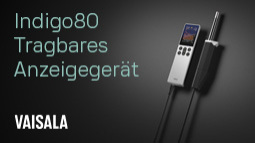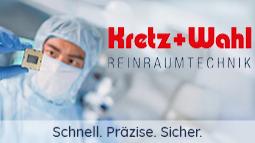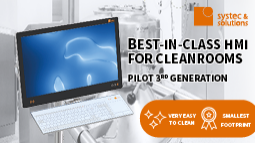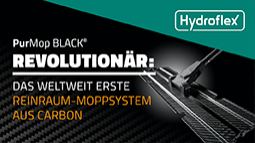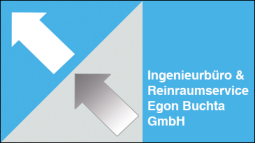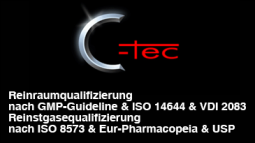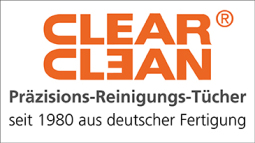Megatrend Digitization: Fit for the Smart Lab
analytica 2018
- analytica as a leading platform for digitization in the laboratory
- 158 exhibitors present laboratory automation, software and more
- About 60 lectures, sessions and expert panels on digitization
- New: Forum Digital Transformation
The analytica 2018 paves the way for digitization in the laboratory industry: From April 10 to 13, the international leading trade fair for laboratory technology, analysis and biotechnology informs about hard- and software solutions that contribute to increasing efficiency in the laboratory and to optimal handling of big data. Digitization is a recurring theme throughout the exhibition area, the supporting program and the analytica conference. Concentrated expertise on digitization is presented to visitors in the new Forum Digital Transformation.
In our times of digitization and automation, analytical laboratories are facing a challenge: Ever more sensitive measuring methods, networked devices, and increasing sample throughputs are leading to a deluge of data whose management requires new instruments and data privacy concepts. At the analytica 2018, the industry will learn how digital transformation results in more efficient workflows in the laboratory already today. The trade fair presents the world’s most comprehensive exhibition and presentation spectrum concerning digitization in the laboratory: In the supporting program and at the analytica conference, about 60 lectures, sessions, panel discussions and live demonstrations will help to sharpen the notion of the laboratory of the future. In the exhibition halls, the topics of laboratory automation, software and many more are covered by about 160 exhibitors: The industry association SPECTARIS and manufacturers such as Eppendorf and BioTek show how laboratory devices can be linked and controlled from anywhere. In the future, the smartphone will also indicate whether experiments and measurements proceed as desired. If the parameters are correct, it is not necessary to go to the lab, and if problems arise, the systems send a warning. Anyway, many new features facilitate work in and out of the lab. Environmental analysts, for example, can rejoice about a mobile system by ECHO that detects methane and further soil gases: Thanks to a GPS module, it automatically assigns the correct location to the data. RFID tags and other digitally readable labels for sample identification or instrument control are likewise becoming increasingly popular.
New forum on the pulse of now
With expert lectures from the real world and panel discussions, the newly established Forum Digital Transformation in Hall B2 emphasizes that the smart laboratory is already much more than just a bold vision. On April 10, special topics for the biotech industry will be on the agenda here: Dr. Jürgen Zimmermann from the European Molecular Biology Laboratory (EMBL) in Heidelberg reports on automation in genomics research, while Dr. Florian Glauche from the TU Berlin in turn talks about the automated development of bioprocesses under the heading of “Strain Characterization 4.0”. On April 11 and 12, the industry association SPECTARIS addresses the networking of analyzers.
In addition, exhibitor lectures and presentations on everything relating to the smart laboratory will take place at the Forum Digital Transformation: For example, in two live workflows with the eLabJournal by Bio-ITech in conjunction with the VisioNize system, Eppendorf provides an insight into the possibilities of efficient and intuitive digital documentation of daily laboratory tasks.
Mettler-Toledo asks the question “How fit are we for the laboratory 4.0?” at the Forum Digital Transformation and answers it with the presentation of EasyMax in the exhibition area of the forum – a synthesis workstation with control software for optimization of chemical development and process optimization.
Nexygen, the initiative of Köttermann, Memmert, Hirschmann and 2mag, shows the application-specific networking of a Memmert heating cabinet, a Hirschmann peristaltic pump, and a 2mag magnetic stirrer, together with a functional Köttermann laboratory cabinet, using OPC-UA interface technology. The visualized operation of the application process is illustrated using virtual reality glasses.
On its forum area, Thermo Fisher focuses on the “Digital Science Talk” and demonstrates practical implementation of the presentations held by Thermo Fisher experts in the Digital Transformation Forum.
In the life sciences, digitization is likewise omnipresent. The Focus Day on Personalized Medicine at the analytica on April 13 will feature two keynotes addressing the topic („Healthcare revisited: making data meaningful”, 12:05 – 12:30 o’clock and „One in a million – your data will be king”, 12:30 – 14:00 o’clock).
analytica conference with “smart” topics
Moreover, the megatrend digitization is a priority in the program of the scientifically oriented analytica conference. An overview in the data jungle of the life sciences can be expected, for example, from the lecture series “From Big Data to Smart Data” and “Big Data Tools for Omics” on April 10. Process analytics as the key to Industry 4.0 is also strongly represented with three sessions on April 10, and the Chemometrics Symposium on April 12 likewise provides tools for handling large data sets.
The examples show: Digitization offers plenty of opportunities, but its implementation requires technical expertise. Nowhere can laboratory users and decision-makers learn more clearly than at the analytica in Munich how digital processes can be integrated into routine laboratory practice already today.
Messe München GmbH
81823 München
Germany
